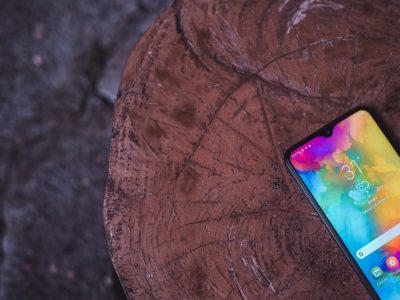If you’re ready to upgrade your smartphone, you’re in a very favorable position right now. Never before has there been such a wide selection of high-quality smartphones, from Android to iPhone, and even to Windows Phone. Even better: the above statement will be true for a long time. Manufacturers are releasing new handsets all the time, so whether you’re upgrading today or five months from now, you’ll have an abundant array of choices.
![htc-android-phones[3]](https://techwench.com/wp-content/webpc-passthru.php?src=https://techwench.com/wp-content/uploads/2012/12/htc-android-phones3.jpg&nocache=1)
Perhaps you have your eye on one particular smartphone. For whatever reason, it stands out to you more than the rest. Don’t be hasty in purchasing it, though. There is one thing everyone needs to know before purchasing a smartphone:
The carrier is more important than the phone.
You can have the most powerful smartphone in the world, but if it’s on a subpar carrier, you won’t get the most out of it. Additionally, carriers can limit your choice of phones. There are indeed many reasons to consider the carrier first, before you consider the phone.
Carriers determine speed
Even if you have a phone with a quad-core processor and 4G capabilities, it won’t do you much good if you’re on a subpar carrier. Who needs a 4G phone if you’re getting sub-4G speeds from your carrier?
As we’ll discuss in a moment, there might be good reasons to choose this slower carrier. If that’s the case, a top of the line phone isn’t necessary. There is no reason to spend all that money on a high-end phone if it can’t work to its fullest on your carrier.
In those cases, it’s better to purchase a cheaper, yet still useful, phone that is more in line with the carrier’s capabilities. If the carrier only has 3G speeds, for instance, there’s no reason to invest in a 4G phone. You can probably purchase a cheap 3G phone that will work well with the carrier and save you money at the same time.
Carriers determine selection
One sad reality in the smartphone world is that in many cases, smartphones are tied to a single carrier. This is almost always the case in the U.S., and is becoming the case elsewhere as phones become more intricate and expensive. Since the phone is tied to the carrier, the carrier then chooses the phones they will offer. Not every carrier will offer the same selection.
Remember that particular phone you had your eye on? If your preferred carrier doesn’t offer it, you’re out of luck. Your only options then are to switch carriers to one that does carry the phone, or find a different option with your current carrier. There are upsides and downsides to both choices, but in both cases the carrier dictates the situation.
In many cases it makes sense to find a different phone with your preferred carrier. Take a look at the selection of T-Mobile 4G phones. There are many available cheaply or for free — including a powerful Windows 8 phone. If you prefer T-Mobile, because they have fast speeds and better prices than other carriers, you are better off picking a different phone from them, rather than switching carriers to get your preferred phone. That’s because…
Carriers set the prices
When you purchase a smartphone you might be laying out hundreds of dollars. The Samsung Galaxy Note, for instance, costs up to $300 with some carriers, and that’s even with the discount for signing a two-year contract. Yet that’s the least expensive aspect of the entire ordeal. The most expensive is the monthly fee, which can cost a user thousands of dollars over a two-year span.
When I mentioned that there are good reasons to go with a carrier that has slower speeds, price was the main reason. Sometimes getting those 4G speeds just isn’t worth the premium price. A carrier with slightly slower speeds might cost $10 or $20 less per month than the high-end carrier. That’s hundreds of dollars in savings over two-year span. Sometimes a different carrier’s prices just make more sense for you, in which case you have to pick from their selection of smartphones.
In many ways these themes all tie together. In the modern mobile world, the carriers call the shots. They control the selection, they control the speeds, and they control the prices. Consumers, then, must choose carriers wisely and with a more discerning eye than they choose phones. There are plenty of phones on the market that can match the power of the Samsung Galaxy S III. Better to find a similar phone on a carrier that works for you, rather than spend hundreds of extra dollars just to get that shiny new toy.










Comments